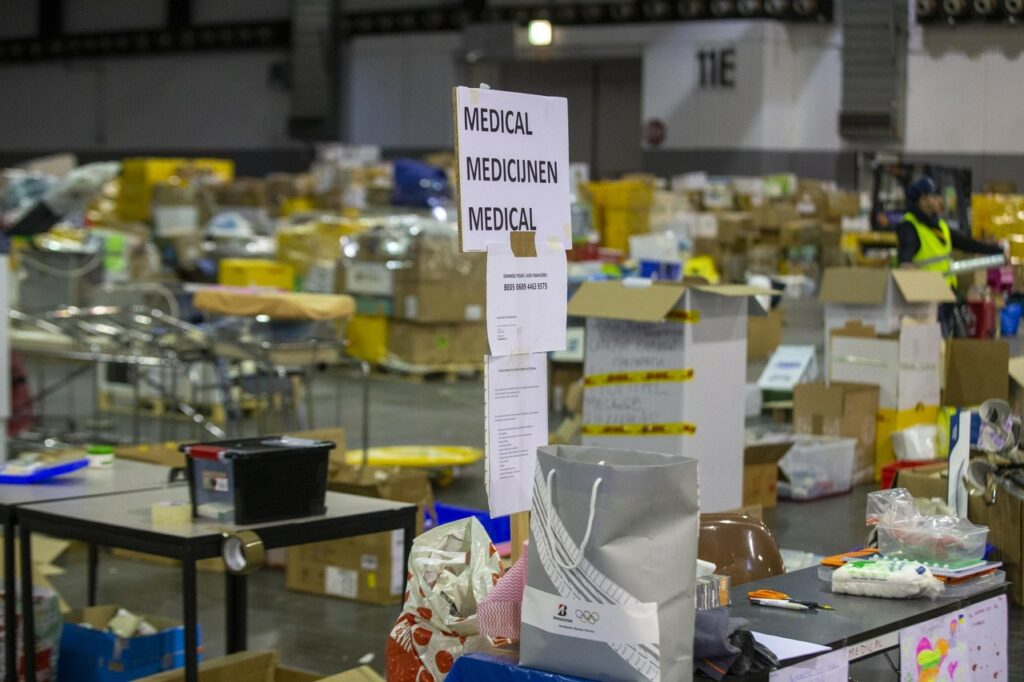Since the Russian invasion, 216 tonnes of emergency medical supplies and equipment have already been delivered to Ukraine by the World Health Organisation (WHO).
Of the total supplies and equipment provided by the organisation, 122 tonnes – just over half – have reached their intended destinations, mostly in the east and north of the country, regions that are at the heart of the ongoing war, according to Bhanu Bhatnagar, WHO Europe's spokesperson.
"WHO continues to bring supplies into Ukraine and distribute them across the country from our warehouse here," he said.
He added that the organisation is working hard to re-open its operations and country office in Kyiv so it can directly assess the health needs of citizens, interact with key government stakeholders and ensure it is "delivering the right assistance to the right places at the right time."
The organisation is also looking to expand an operational base in Dnipro, in east-central Ukraine, to be "closer to the people who are in greatest need of life-saving humanitarian assistance," and to mobilise resources more efficiently.
Limited access to healthcare system
Some 300 health facilities are in conflict areas and another 1,000 health facilities are in changed areas of control, leaving the health system vulnerable to infrastructural damage and severe disruptions in critical services. It is also limiting access to medicines, health facilities, and healthcare workers.
Related News
- Belgium reopens embassy in Kyiv; €500 million more aid
- Air strike on Kharkiv kills ten civilians
- Putin has destroyed the last vestiges of the ‘Russian world’
Since the war started almost eight weeks ago, the WHO has verified 108 incidents of attacks in Ukraine on health facilities, which have included hospitals, personnel, transport, supplies, and warehouses. At least 73 people have died and 51 have been injured in these attacks, according to the organisation.
"We continue to condemn in the strongest possible terms all attacks on healthcare, which not only deprive people of vital health services but are also a violation of international humanitarian law," Bhatnagar said on Tuesday.
The WHO is expected to provide 20 ambulances to the country, and 15 generators to hospitals that have limited or no power supply, including in Oblasts in the north, east and south and in Mariupol, as soon as it can gain access to the besieged city. According to reports, Russian forces have used chemical weapons here.

